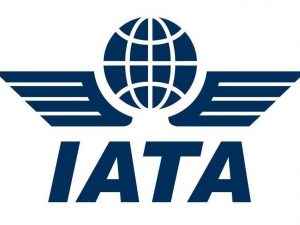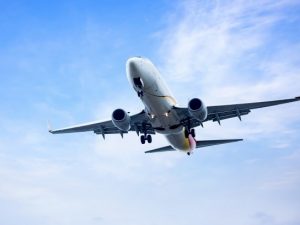IATA has said that it supports the unrestricted access to travel for vaccinated travellers as a growing number of countries make data and evidence-driven decisions to open their borders to them. In cases where vaccination is not possible, access to quarantine-free travel should be provided through COVID-19 testing strategies based on widely available, free-of-charge tests, the Associations suggests.
Read More »IATA and Harvard ManageMentor team up for global training programme
The IATA and Harvard ManageMentor course allows aviation professionals to quickly learn and apply new skills that are up-to-date and relevant in the industry. This programme, developed by aviation leaders and Harvard’s world-class experts, will not only foster leadership skills but will also prepare aspirants for real-world challenges as the industry restarts. The course is available at up to 40% discount on registration until June 7, 2021.
Read More »Willie Walsh takes over as Director General IATA
The International Air Transport Association (IATA) has announced that Willie Walsh has officially taken on the role of Director General of the organization. He succeeds Alexandre de Juniac. “I am passionate about our industry and about the critical work that IATA does on behalf of its members, never more so than during the COVID-19 crisis. IATA has been at the forefront of efforts to restart global connectivity, including developing the IATA Travel Pass. Less visible but of equal importance, airlines continue to rely on IATA’s financial settlement systems, Timatic and other vital services to support their day-to-day operations. I am grateful to Alexandre for leaving behind a strong organization and a motivated team. Together, the IATA team is absolutely focused on restoring the freedom of movement that airlines provide to billions of people around the world. That means your freedom to visit friends and family, to meet critical business partners, to secure and retain vital contracts, and to explore our wonderful planet,” said Walsh.
Read More »Global aviation organisations call for flexible slot rules
The Worldwide Airport Slot Board (WASB) comprising ACI World, IATA, and the Worldwide Airport Coordinators Group (WWACG) recommend regulators worldwide to temporarily adopt more flexible slot rules as quickly as possible in order to preserve essential air transport connectivity.
Read More »IATA’s digital health pass in final stages of development
IATA is in the final development phase of the IATA Travel Pass, a digital health pass that will support the safe reopening of borders. The Pass will manage and verify the secure flow of necessary testing or vaccine information among governments, airlines, laboratories and travellers.
Read More »IATA to no longer charge travel agencies for TIDS
IATA has enhanced its Travel Industry Designator Service (TIDS) and will also no longer charge travel agencies to use the service. TIDS is an IATA programme which provides a unique identification code for travel agents and sales intermediaries who are not IATA-Accredited agents and are located outside of the USA.
Read More »IATA working with WHO, ICAO on COVID testing
IATA is working with the International Civil Aviation Organization (ICAO) and the World Health Organization (WHO) to put in place scalable, affordable and fast testing systems, revealed Conrad Clifford, Regional Vice-President Asia Pacific, IATA. Alexandre De Juniac, Director General & CEO, IATA had also said last week, “We have a solution to open borders while mitigating the risk of importing COVID-19 through air travel. That is universal testing. There is testing technology that aligns with our requirements for speed, accuracy, affordability, scalability and ease of use in the travel process. And we are seeing momentum towards implementation.”
Read More »Awaiting acceptance of credit cards by airlines: Jyoti Mayal
Jyoti Mayal, President, TAAI, has said that they have been in discussion with Ministry of Civil Aviation for many of their issues, one of which is the acceptance of credit cards by airlines. “It has been cleared by the PAPJC and IATA, but we are still knocking every airline’s door. There should be a directive from the government for the same. There should be neutral capping of fares. Also, we are looking at remuneration in a big way. As travel consultants, we should have a right to charge our fee. Else, our services can be treated as MRP product so that we are protected. We should be allowed to charge 10% fee on it like the hotel industry is charging service fee,” she said.
Read More »Need to renegotiate BSP agreement with IATA: UFTAA
Yossef Fatael, Vice President, UFTAA, has said that they have written to IATA that there is a need to renegotiate BSP agreement and structure. “We think that this is the time to renegotiate the agreement, the relationship, the structure of the BSP, as well as the way the relationship between the principal (airlines) and the agents is being governed. Our demand is to go back and discuss the governance of the programme and to make some urgent changes that will reflect all the weaknesses that we are experiencing during this crisis time,” he said while giving his presentation at UFTAA Mid-year Forum 2020 Part-2.
Read More »Airlines lose cash influx with consumers using travel vouchers
IATA has reported that intra-EU passengers have used many vouchers, issued since mid-March 2020 in lieu of refunds, to pay for travel between 15-Jun-2020 and 15-Jul-2020. Airlines are now incurring the deferred cost of transporting these passengers against limited or zero new revenues. IATA stated, “Whilst the issuance of vouchers helped decelerate cash burn a few weeks ago, their use will now accelerate cash burn in the coming months’. The data is based on IATA’s Billing and Settlement Process, which underestimates the use of vouchers because it does not record vouchers as exchanges in all cases.
Read More » Tourism Breaking News
Tourism Breaking News






